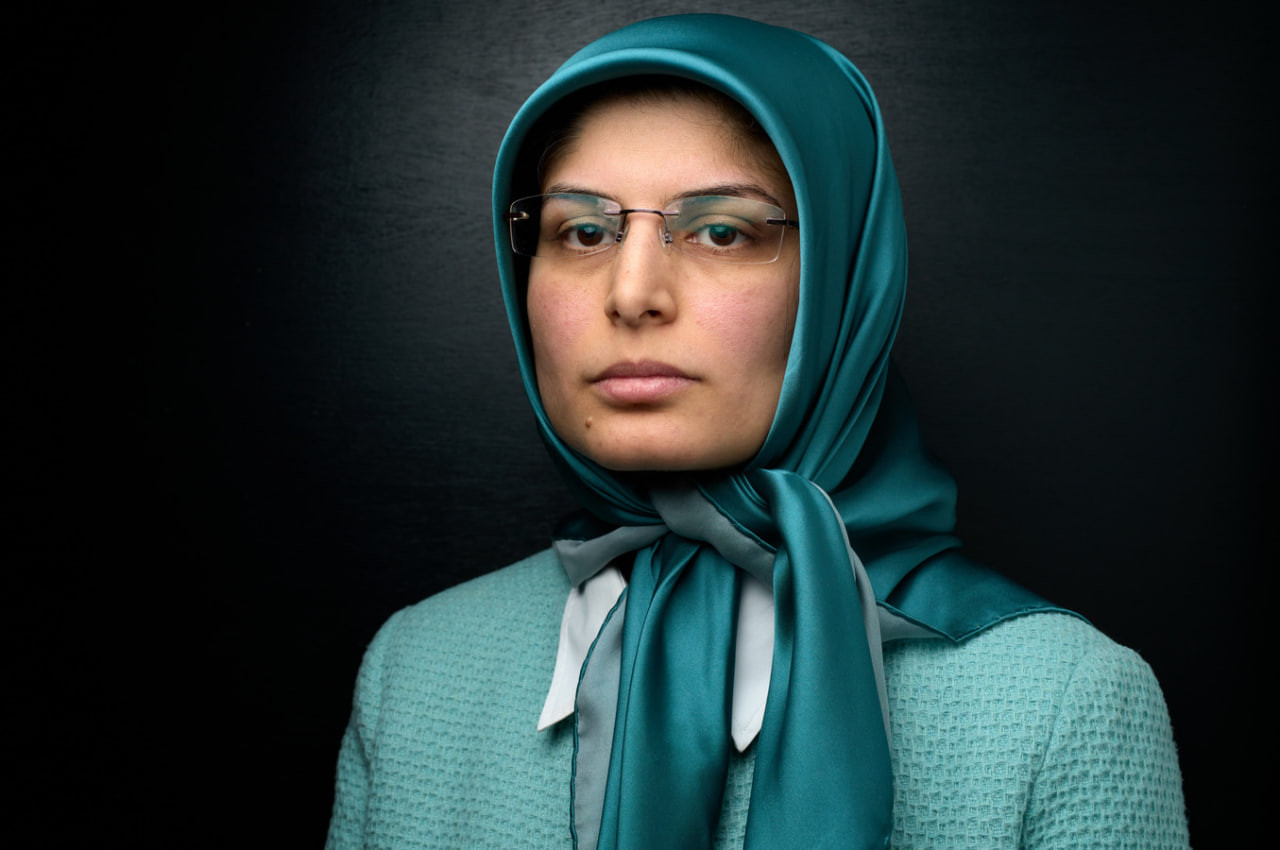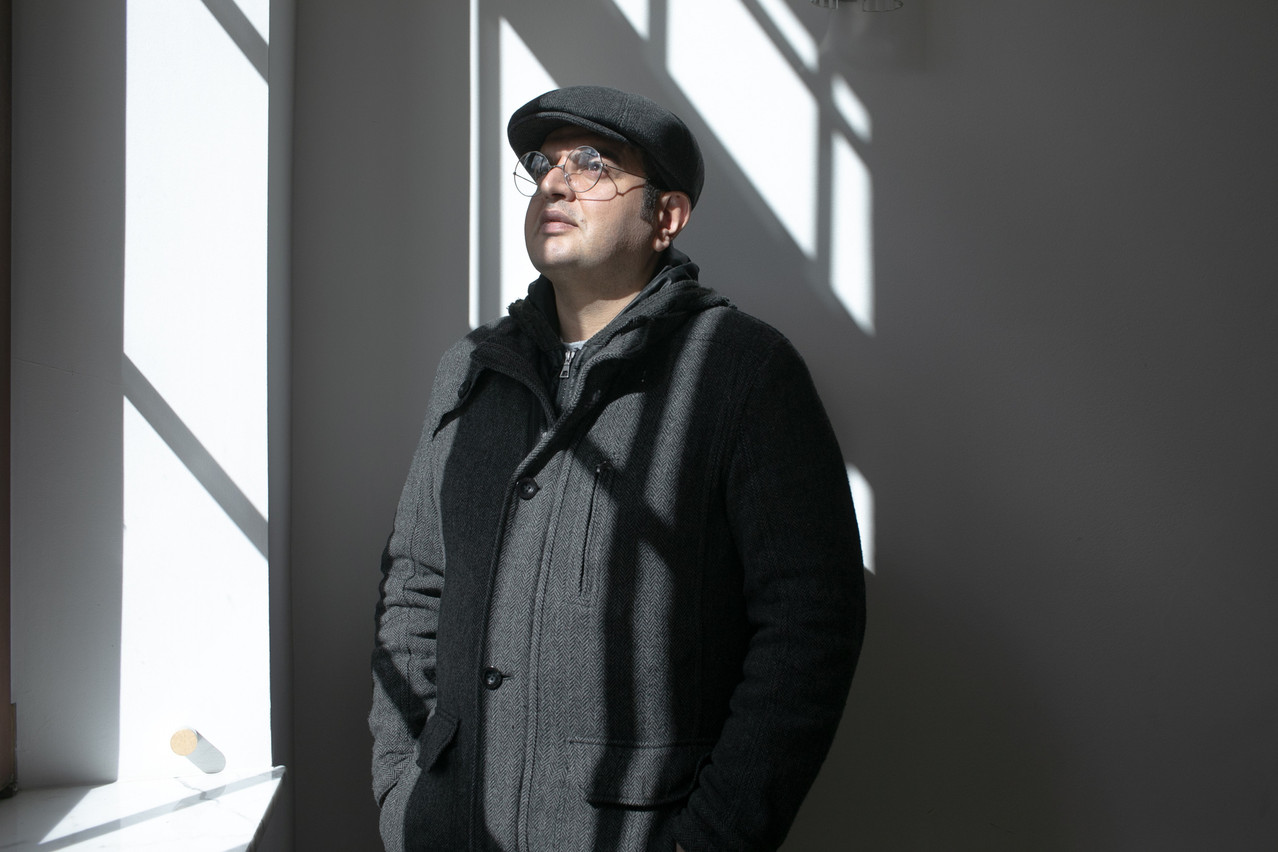“I didn’t believe it. I didn’t know if it was real,” recalls Ehsan Tarinia about seeing the first news on social media about the death of Mahsa Amini at the hands of Iran’s morality police. Tarinia arrived in Luxembourg in 2005 as a political asylum seeker, having worked as a journalist in his home country.
The death of the 22-year-old woman of Kurdish origin who had been visiting family in Tehran was the spark that ignited a wave of protests across the country, and which persists six months on.
“They have nothing left to lose,” said Isabelle Tavousi, who forms part of the Iranian association Simourq together with Tarinia. The generation that has now taken to the streets has been left disillusioned by the attempts of their parents and grandparents to reform and reason with the current regime. “They want regime change.”
Their families have been hit by sanctions and a crippled economy, there is no work. At the same time, they have unprecedented access to the outside world. “They are ultra-connected. They know very well where the truth lies, who’s who, what they’re being told, what is this nonsense,” says Tavousi.
“They were already born in danger,” adds Tarinia.
The Oslo-based Iran Human Rights group says that as of the end of January, at least 488 people have been killed by security forces in a violent crackdown on protesters. This includes 64 children and 39 women. At least 107 protesters are at risk of execution.
One of them is a Luxembourg resident of Iranian origin. The foreign ministry in December had said that a person from the grand duchy had been detained and sentenced to death. A spokesperson this week told Delano that the ministry “unfortunately has no further information on the situation of the individual referred to.”
The ministry, he said, “remains committed to obtaining any information and follows the development in Iran very closely.”
At least 55 people were executed during the first 26 days of this year. Thousands have been arrested but the regime under supreme leader Ali Khamenei this week said that it would pardon 22,000 people who took part in the protests.
“The people of Iran are brave”
But the Iranian people are done with appeasement politics, says Shabnam Madadzadeh, a former political prisoner who now lives in Europe. She regularly visits Luxembourg as part of her activism, but is not linked with Simourq or its activities.
As a student activist, she was arrested and sent to the notorious Evin prison. She would serve five years in different detention centres, some of it in solitary confinement, “under torture and interrogation.” A friend of hers was executed. “I cannot forget that night.”
After her release, Madadzadeh couldn’t continue her studies. She was refused a passport and eventually left the country illegally through a resistance network. She is affiliated with the People’s Mojahedin Organisation of Iran, which is considered a terrorist group by Iran and Iraq.
“The people of Iran are brave. They bravely go on the streets and bravely stand against the army police,” she says. The people, she says, are no longer afraid. “Now it’s the government who fears and is becoming weaker.”
While Khamenei earlier this month called the suspected poisoning of hundreds of school girls in Iran “unforgivable” and said the perpetrators should be sentenced to death, for Madadzadeh and many others there is no doubt that it’s the regime committing the crime.
And while in the early days of protests, women tore off their veils, the movement is about so much more. “They want to be free,” she says of the women or Iran. Madadzadeh herself wears a headscarf but says it is her choice to do so.

Shabnam Madadzadeh spent five years in Iran’s prison system and experienced torture and abuse. Photo: Private
“The problem isn’t the veil. There are veiled women who are deeply faithful who are against the regime and improves,” says Isabelle Tavousi, who is French Iranian and moved to Luxembourg for work in 2015. For years, women have been defying the rules even if it has meant arrest or worse.
Women in Iran aren’t allowed to ride a bicycle. They need the authorisation of their husband or a male relative to travel or study, even for a medical procedure on their own body or if their child is sick.
Tavousi draws a parallel to the covid-19 pandemic, the limitation on movement, the mandatory wearing of a mask. A violation here would carry a fine, she says. “Over there, you could get killed, imprisoned, tortured or raped.”
The regime, she says, is lawless, operates only by its own arbitrary and barbaric rules. “Life is worth nothing,” she says. The people are at the mercy of the regime’s cruelty. “There’s nothing you can do.”
Tarinia and other members of the Iranian community in Luxembourg last month met with foreign minister (LSAP) but said they were left disappointed by the meeting.
“We’re in danger,” said Tarinia, explaining that he had been threatened several times by Iranian agents here in Luxembourg and laughing at the naiveté of policymakers.
EU response
Iranian diplomat Assadollah Assadi in February 2021 was sentenced to 20 years in prison by a court in Belgium for plotting a bomb attack against a rally organised by Iranian dissidents near Paris.
Assadi had met with two accomplices at a Pizza Hut restaurant in Luxembourg City in 2018 handing them a package containing half a kilogramme of the explosive TATP and a detonator. They were being monitored and police made a string of arrests in Belgium, France and Austria several days later.
“What more proof do they need,” exclaims Tarinia.
Activists have been lobbying for the EU to recognise the Islamic Revolutionary Guard Corps (IRGC) as a terrorist organisation. But while the European Parliament issued a recommendation to this effect to the council--the EU’s executive--the latter has argued it needs a court decision, legal statement or concrete condemnation to be able to proceed.
“We are in a state of rule of law,” says member of the European Parliament for Luxembourg Isabel Wiseler-Lima (CSV/EPP), who sits on the body’s human rights committee. The council must cover all its bases and the decision must be legally sound, she said.
The parliament, she says, has stopped all diplomatic relations with Iran and during a meeting next week is set to discuss more measures to support the people of Iran, including humanitarian help or facilitating refugee procedures. “International support is very important,” she says.
During a plenary session on 15 March, Iranian activist and Nobel peace prize winner Shirin Ebadi was invited as a special guest.
The West, says Madadzadeh, must stop any policy of appeasement and should also recognise that Iran is exporting its terror within the region, in Iraq, Syria and elsewhere in the Middle East. This, she says, could stop under a new government.
We are alone. We must rely on us, not anyone else.
“I know now that no-one--neither the European Union, the US, nor anyone else--stands with the Iranian people,” says Tarinia over what he says is a tepid response against the regime. “We are alone. We must rely on us, not anyone else.”
Whatever comes next, the people of Iran want a democratic and secular government, instituted without foreign interference and chosen by the public, he says.
Iranians inside and outside of the country, for example, oppose the Mojahedin, despite Western backing of the group, such as by the US Congress.
Since the overthrow of the Shah in 1979, one wave of revolution has fed the next, says Tavousi. “The fire never went out.” In Luxembourg, the Simourq association continues its lobby and awareness-raising work in support of a free Iran.
Anti-regime protests newly erupted during the Chaharshanbe Soori celebrations this week, a festival with ancient roots that hardliners have condemned for being un-Islamic. And the riots won’t stop, says Tavousi.
“Can you imagine a way back, with everyone who’s been killed,” she says. “How can someone who perhaps didn’t even know where Iran was on a map ignore the death of Mahsa Amini, the poisoning of young girls, the torture of women who remove their veils. No-one will forget this.”
This article was updated on 16 March at 2:10pm to clarify that Shabnam Madadzadeh is not linked to Simourq or its activities.

